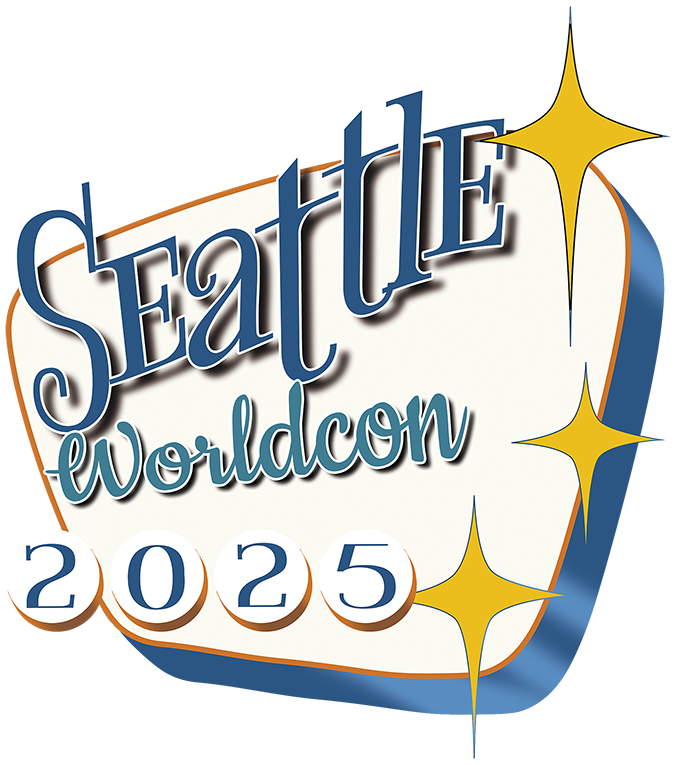Hello, fellow travelers!
As you are reading this week’s issue of Con-Verse, you have less than two weeks left to nominate your favourite works for this year’s Hugo Awards—which includes the 2025 Special Hugo Award for Best Poem! Let this serve as a penultimate reminder to get your favorite poems in! At this point, we’ve been building up our muscles in finding ways to approach poems that intrigue and challenge us.
Today, let’s consider yet another one of those reading tools: considering pop culture as an element of the speculative. Now, you may ask, “How come just being a nerdy or geeky thing makes something speculative? Isn’t that just the same ‘just put a robot in it’ treatment you said didn’t necessarily make a poem speculative, Brandon?” Well, the fact that our nerdy and geeky things are generally speculative notwithstanding, there is in fact something deeper going on in a metaphorical sense: Namely, what those speculative things represent can be a way into a deeper poetic observation being made, one that is often compared to not only the speculative element of that pop culture reference but also to its use in narrative overall.
Our relationship with genre narratives as portrayals of theme has been pretty much a fact of our identity as nerds and geeks, down to the fact that we recurrently make comparisons between the protagonists of Greek epics and the caped heroes of our favourite comics or the fact that humanities scholars have observed the startling similarity horror films have to the fairy tales of our youth in terms of dispensing strong allegories about surviving the threats of modern life. That leaves not only those elements themselves but also the very storytelling we do about them as fertile ground for exploring our relationship to both the truths of those stories and the ways we tell them.
Take, for instance, one of my favourite poems from Danez Smith, “Dinosaurs in the Hood.” The narrative is simple, a pitch for a kickass movie about … you guessed it: dinosaurs showing up in the hood. Early on, it is on its face a very funny, earnest poem about how cool it would be for Black audiences to get a sci-fi action-comedy about saving their neighbourhood from dinosaurs, but as it continues it asks more intriguing questions about the assumptions Hollywood makes about the portrayal of both rugged action-adventure heroes and the experiences of Black people. It ultimately returns to a point that is both salient and hilarious: Those assumptions could be easily dispelled if you just played it straight and put dinosaurs in the hood.
Kazumi Chin’s “Homeland Security Arrests Godzilla Without Reading Him His Miranda Rights as ‘White Christmas’ Fills the Air” is a very image-laden piece, but its (literally) largest symbol is juxtaposed against so many images of American pop culture to make larger points about neocolonialism and Western cultural hegemony through an Asian-American lens. It is not just a poem “about” Godzilla—it is a poem about how we watch Godzilla, how we listen to Bing Crosby, and even how we drink Coca-Cola.
Media poems like this are very critical as a matter of course. They give the reader a way into challenging their perception of the tropes and images that have become ubiquitous in our modern day, especially when the poems are removed from the past traditions of the recurring fantasy imagery of early poetic writing and very strongly place themselves in the present. As you’re reading for the Hugos, consider not only what the placement of a particular pop culture object says on its own thematically but also what the poem perhaps tries to question about how we read that pop culture object. It may be symbolic in an overtly speculative sense, but it could also serve as a metonym for a community or audience, a particular cultural phenomenon, or a historical event. What does it say, then, when that image is in conflict with something else, being compared to surrounding mundane images, or behaving in ways that don’t resemble its real-world counterpart?
If you come across a potentially speculative media poem, what is it saying about the ways in which we read and re-portray some of the popular elements of our genre? Is it asking us to be more discerning or critical? Is it pointing out something previously unchallenged or even unknown about the symbolic attachments we have to certain popular franchises?
I trust that the media poems you do read as you’re digging into 2024 poetry for the Hugo Awards will be stimulating and intriguing. Maybe one will even have something to say in a new and inspiring way about a modern genre franchise you already enjoy !
Again, time is ticking before nominations for the Hugos close, so don’t hesitate to put poetry in the category for the 2025 Special Hugo Award for Best Poem as we come hurtling ever closer to the deadline!
Until next time, may tomorrow and your good days always rhyme!
Brandon O’Brien is a writer, performance poet, teaching artist, and tabletop game designer from Trinidad and Tobago. His work has been shortlisted for the 2014 and 2015 Small Axe Literary Competitions and the 2020 Ignyte Award for best in speculative poetry, and has been published in many genre magazines and collections. He is the former poetry editor of FIYAH. His debut poetry collection, Can You Sign My Tentacle?, available from Interstellar Flight Press, is the winner of the 2022 Elgin Award. He is the poet laureate for Seattle Worldcon 2025, and the first poet laureate of any Worldcon.

